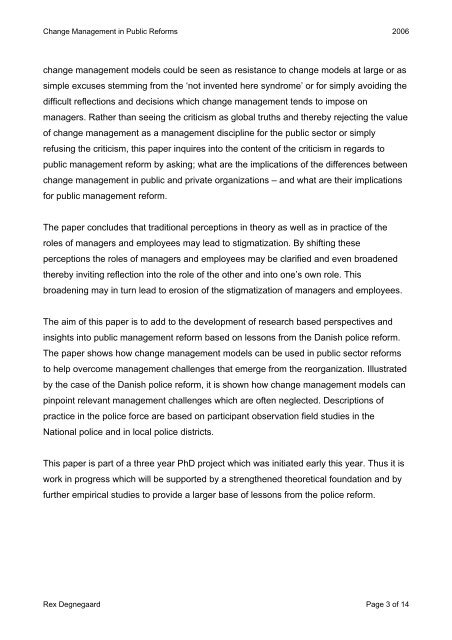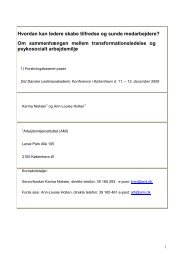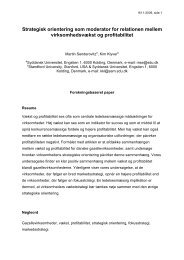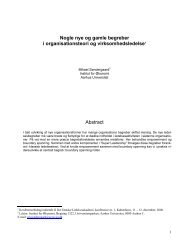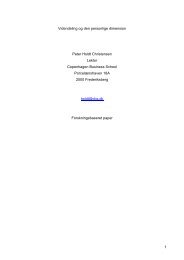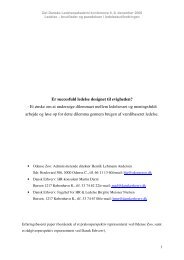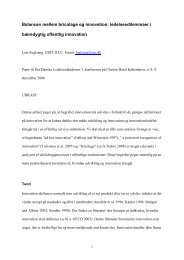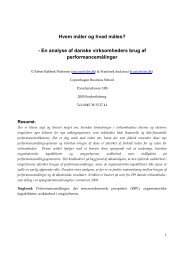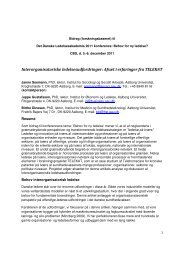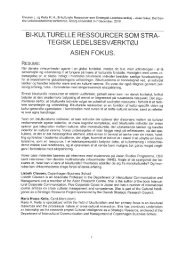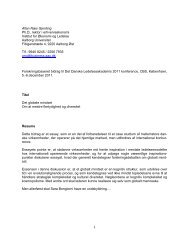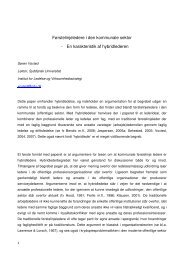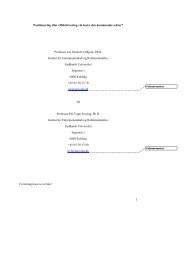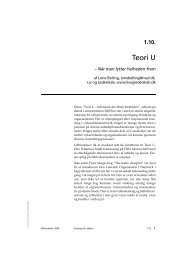Change management in public reforms - Det Danske ...
Change management in public reforms - Det Danske ...
Change management in public reforms - Det Danske ...
Create successful ePaper yourself
Turn your PDF publications into a flip-book with our unique Google optimized e-Paper software.
<strong>Change</strong> Management <strong>in</strong> Public Reforms 2006change <strong>management</strong> models could be seen as resistance to change models at large or assimple excuses stemm<strong>in</strong>g from the ‘not <strong>in</strong>vented here syndrome’ or for simply avoid<strong>in</strong>g thedifficult reflections and decisions which change <strong>management</strong> tends to impose onmanagers. Rather than see<strong>in</strong>g the criticism as global truths and thereby reject<strong>in</strong>g the valueof change <strong>management</strong> as a <strong>management</strong> discipl<strong>in</strong>e for the <strong>public</strong> sector or simplyrefus<strong>in</strong>g the criticism, this paper <strong>in</strong>quires <strong>in</strong>to the content of the criticism <strong>in</strong> regards to<strong>public</strong> <strong>management</strong> reform by ask<strong>in</strong>g; what are the implications of the differences betweenchange <strong>management</strong> <strong>in</strong> <strong>public</strong> and private organizations – and what are their implicationsfor <strong>public</strong> <strong>management</strong> reform.The paper concludes that traditional perceptions <strong>in</strong> theory as well as <strong>in</strong> practice of theroles of managers and employees may lead to stigmatization. By shift<strong>in</strong>g theseperceptions the roles of managers and employees may be clarified and even broadenedthereby <strong>in</strong>vit<strong>in</strong>g reflection <strong>in</strong>to the role of the other and <strong>in</strong>to one’s own role. Thisbroaden<strong>in</strong>g may <strong>in</strong> turn lead to erosion of the stigmatization of managers and employees.The aim of this paper is to add to the development of research based perspectives and<strong>in</strong>sights <strong>in</strong>to <strong>public</strong> <strong>management</strong> reform based on lessons from the Danish police reform.The paper shows how change <strong>management</strong> models can be used <strong>in</strong> <strong>public</strong> sector <strong>reforms</strong>to help overcome <strong>management</strong> challenges that emerge from the reorganization. Illustratedby the case of the Danish police reform, it is shown how change <strong>management</strong> models canp<strong>in</strong>po<strong>in</strong>t relevant <strong>management</strong> challenges which are often neglected. Descriptions ofpractice <strong>in</strong> the police force are based on participant observation field studies <strong>in</strong> theNational police and <strong>in</strong> local police districts.This paper is part of a three year PhD project which was <strong>in</strong>itiated early this year. Thus it iswork <strong>in</strong> progress which will be supported by a strengthened theoretical foundation and byfurther empirical studies to provide a larger base of lessons from the police reform.Rex Degnegaard Page 3 of 14


